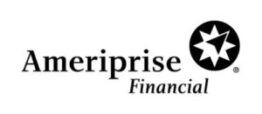
On September 10, 2012, Judge Koeltl of the United States District Court for the Southern District of New York dismissed a class action complaint against ProShares based upon the sale of its inverse and leveraged ETF funds.
ProShares created and operated three types of ETFs: “Inverse ETFs,” the goal of which was for the net asset value of the fund to replicate the inverse movement of a specific index over the period of one day; “Ultra Long ETFs,” the goal of which was for the fund’s value to double the performance of a specified index or benchmark over the period of one day; and “Ultra Short ETFs,” the goal of which was for the fund’s value to double the inverse of the performance of a specified index or benchmark over the period of one day. All three types of ETFs are leveraged, meaning that the mechanism through which they attempt to achieve their goal involves incurring debt through borrowing.
The plaintiffs alleged that investors who held ETFs for periods longer than one day could quickly lose a large portion of their investment, no matter which direction the underlying index or benchmark moved.
For example, with respect to the Ultra Shorts, the Dow Jones U.S. Financials Index experienced a 52% decline over the 18-month period between January 2008 and June 2009. However, rather than
experiencing a 104% gain, the SKF Ultra Short Fund, which tracked the Dow, experienced a 61% decline over that 18 month period.
Judge Koeltl Dismissed The Complaint
Judge Koeltl dismissed the complaint because he found that the registration statements did include some material that attempted to explain the effects of investing in the ProShares ETFs for a period of greater than one day. According to Judge Koeltl, the ProShares prospectus bespeaks caution and adequately discloses the risk associated with these securities. Compare: In re Prudential Secs. Inc. Partnership Litigation, 930 F.Supp. 68, 72 (S.D.N.Y.1996)(“The doctrine of bespeaks caution provides no protection to someone who warns his hiking companion to walk slowly because there might be a ditch ahead when he knows with near certainty that the Grand Canyon lies one foot away.”)
Investors May Recover Through FINRA Arbitration Claims
Notwithstanding Judge Koeltl’s Opinion dismissing the class claims against ProShares, investors may be able to recover their ProShares inverse and leveraged ETF losses by bringing FINRA arbitration claims against the broker-dealers and the stockbrokers that sold or recommended these funds for, among other things, the sale of unsuitable investments, the failure to conduct due diligence, negligence, breach of fiduciary duty, common law fraud, or traditional Rule10b-5 claims for omissions and misstatements of material facts in connection with the sale of these securities.
In 2009, FINRA issued Notice to Members 99-31, reminding firms of:
their sales practice obligations in connection with leveraged and inverse ETFs. In particular, recommendations to customers must be suitable and based on a full understanding of the terms and features of the product recommended; sales materials related to leveraged and inverse ETFs must be fair and accurate; and firms must have adequate supervisory procedures in place to ensure that these obligations are met.
FINRA Notice to Members 99-31 (June 2009)
In this Notice to Members, FINRA also warned members that: “Firms must train registered persons about the terms, features and risks of all ETFs that they sell, as well as the factors that would make such products either suitable or unsuitable for certain investors.” Id. at 4 (emphasis added).
Similarly, on August 18, 2009, the SEC staff and FINRA issued an Investors Alert, with respect to Leveraged and Inverse ETFs: Specialized Products with Extra Risks for Buy-and-Hold
Investors, and warned that: before purchasing an inverse or leveraged ETF, investors should also consider seeking the advice of an investment professional. Be sure to work with someone who understands your investment objectives and tolerance for risk. Your investment professional should understand these complex products, be able to explain whether or how they fit with your objectives, and be willing to monitor your investment.
FINRA Investor Alert, August 19, 2009
Many brokerage firms were also aware of the risks associated with the purchase of leveraged or inverse ETFs, and in August 2009, stopped permitting solicited purchases of these ETFs in traditional brokerage accounts.
If you have suffered losses as the result of the purchase of leveraged or inverse ETF funds, you should consult with a lawyer as you may be able to recover your losses, and the time to file these claims may be running out.
Guiliano Law Group
Our practice is limited to the representation of investors. We accept representation on a contingent fee basis, meaning there is no cost to you unless we make a recovery for you. There is never any charge for a consultation or an evaluation of your claim. For more information, contact us at (877) SEC-ATTY.
To learn more about FINRA Securities Arbitration, and the legal process, please visit us at securitiesarbitrations.com








